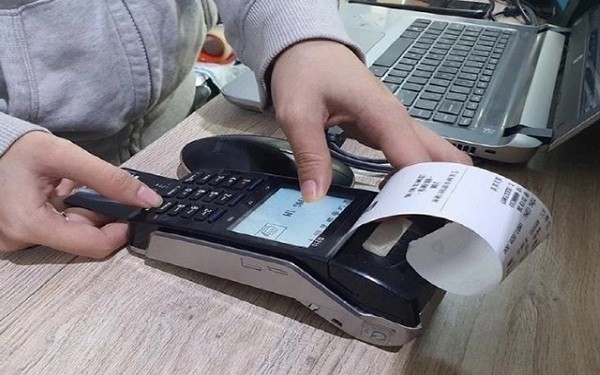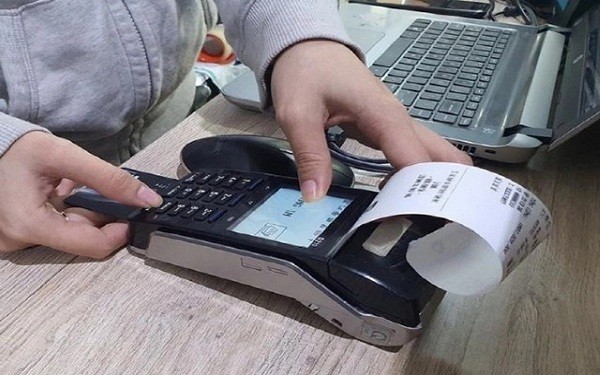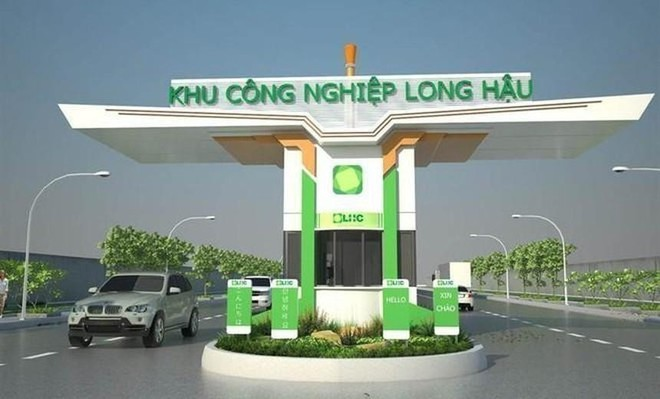The Tax Department of the Ministry of Finance has issued an urgent dispatch to implement Circulars 31 and 32, signed by the Minister of Finance on May 31. These circulars, effective today (June 1), regulate the use of electronic stamps for alcohol and tobacco and the application of electronic invoices in production and trading activities.
Notably, according to Circular 32, entities that registered for electronic invoicing before June 1 are not mandated to use invoices generated from cash registers. Businesses have the option to continue using their registered electronic invoicing system or transition to the new system as per Decree 70.

Optional transition to cash registers for those already using electronic invoicing before June 1. Illustrative image.
According to the Area Tax Office I, which oversees Hanoi and Hoa Binh, over 19,000 organizations, individuals, and business households had registered to use electronic invoices generated from cash registers as of May 30. Among them, nearly 5,600 are business households and individuals.
Business households and individuals who pay taxes under the lump-sum method and have registered and used electronic invoices generated from cash registers before June 1 can continue using this invoicing method.
Circular 32 also stipulates that taxpayers currently using electronic invoices without codes but assessed as high tax risks by tax authorities must switch to coded electronic invoices. The notification of this change will be sent using Form No. 01/TB-KTT, as stipulated in Decree 70. After receiving the notification, business households must complete the transition within ten working days.
The new circular also regulates the use of electronic invoices for certain cases involving large and frequent transactions, requiring time for data reconciliation between sellers and buyers. These include derivative products as per laws on credit institutions, securities, and commerce; cases stipulated in the Law on Value Added Tax; industrial catering services; services provided by commodity exchanges; credit information services; and taxi transportation services (for corporate and organizational clients).
Organizations leasing assets subject to value-added tax must issue invoices as per regulations.
Circular 32 takes effect on June 1, replacing Circular 78.
Crackdown on Large Businesses: The Missing Link of Efficient Cash Registers
Are you satisfied with the output, or do you want me to tweak it further?
The new regulation regarding electronic invoicing will significantly impact businesses. From now on, businesses with a revenue of 1 billion VND or more are required to issue e-invoices generated from a cash register system connected to the tax authority’s data. Failure to comply, including not registering or issuing invoices for sales, may result in a fine of up to 10 million VND. This emphasizes the importance of staying informed and adapting to the evolving landscape of regulations to avoid penalties and ensure smooth business operations.




















